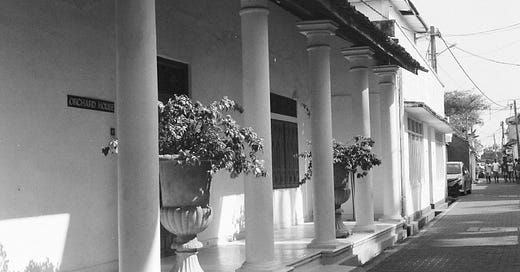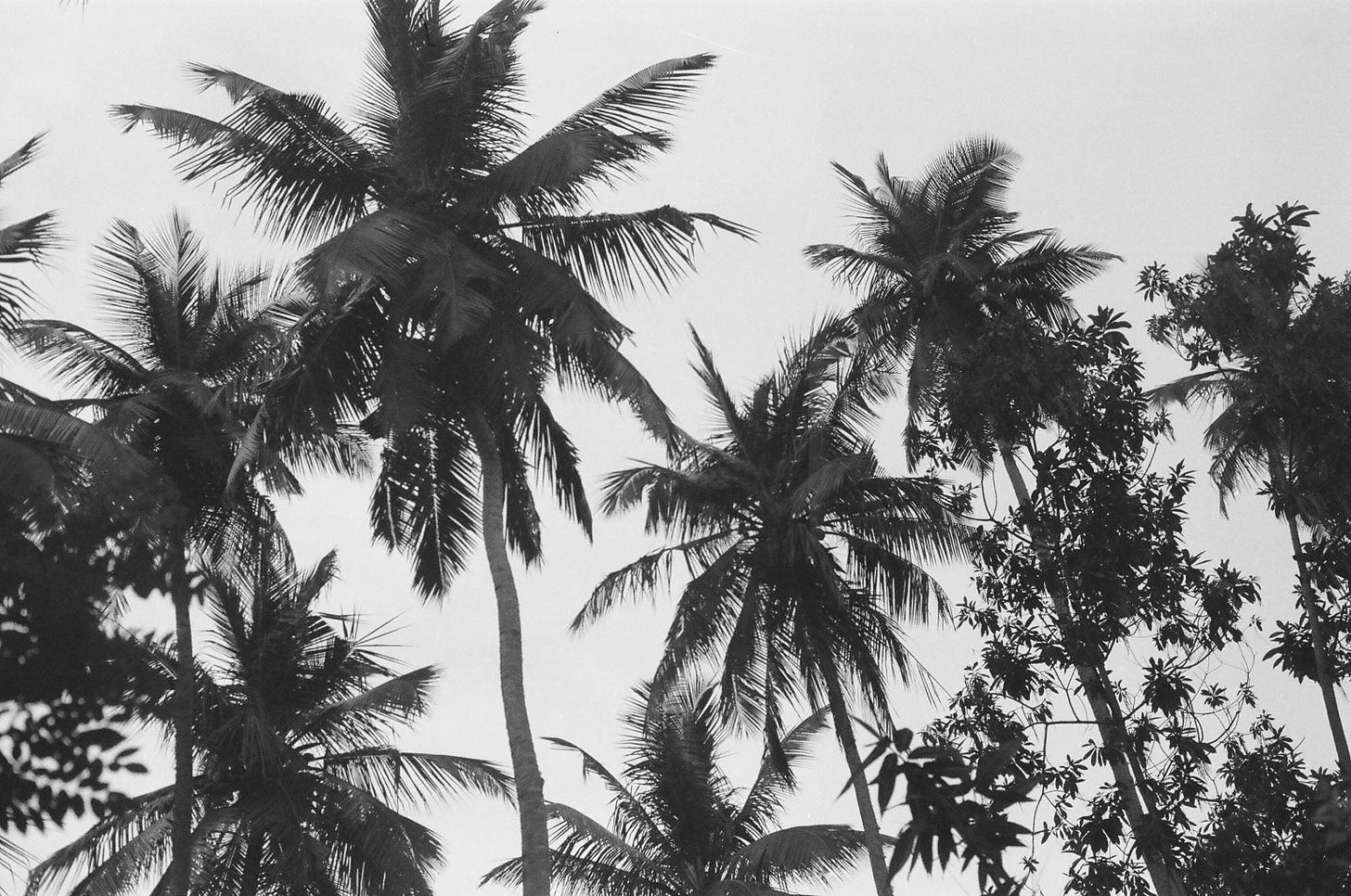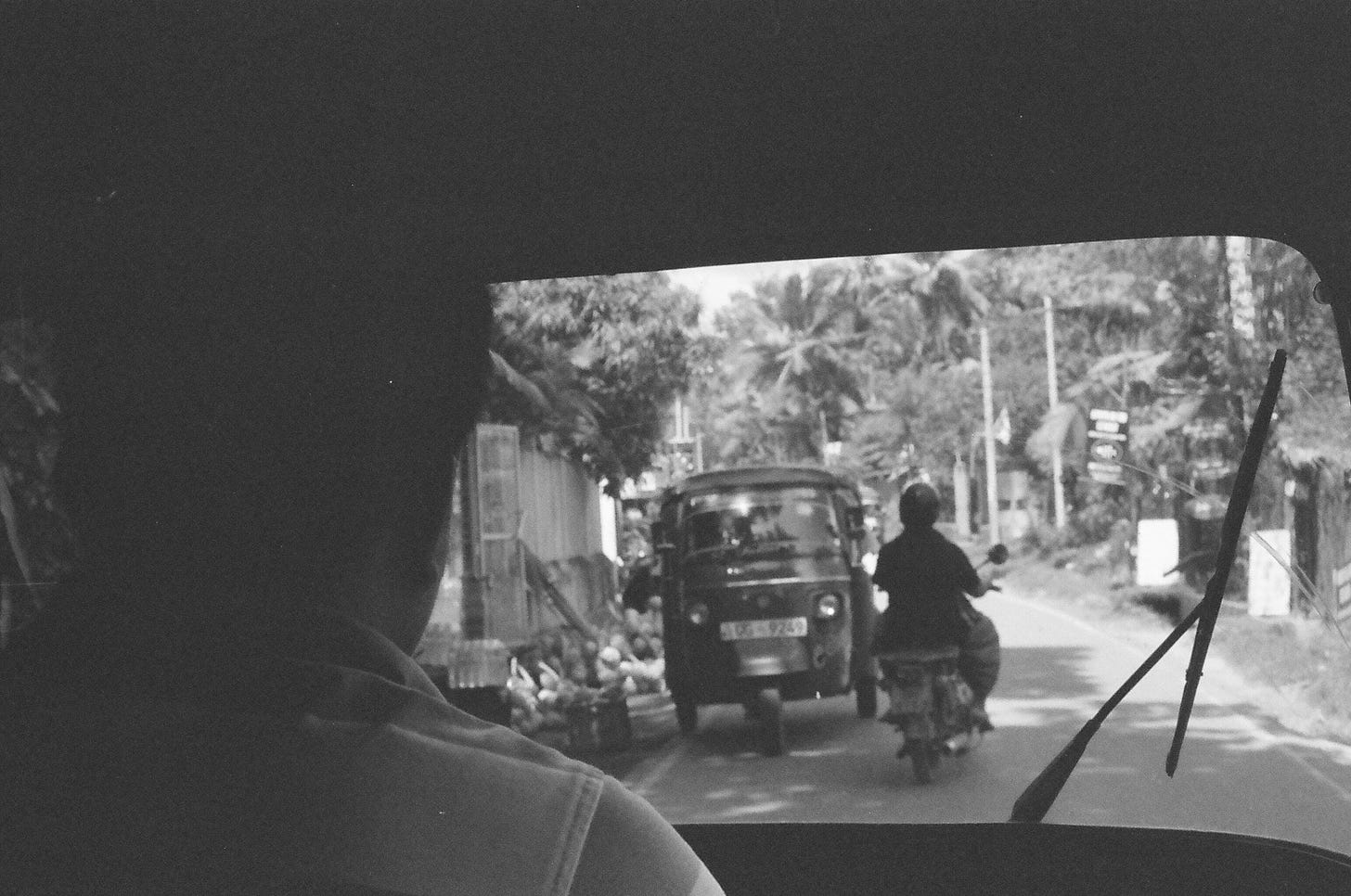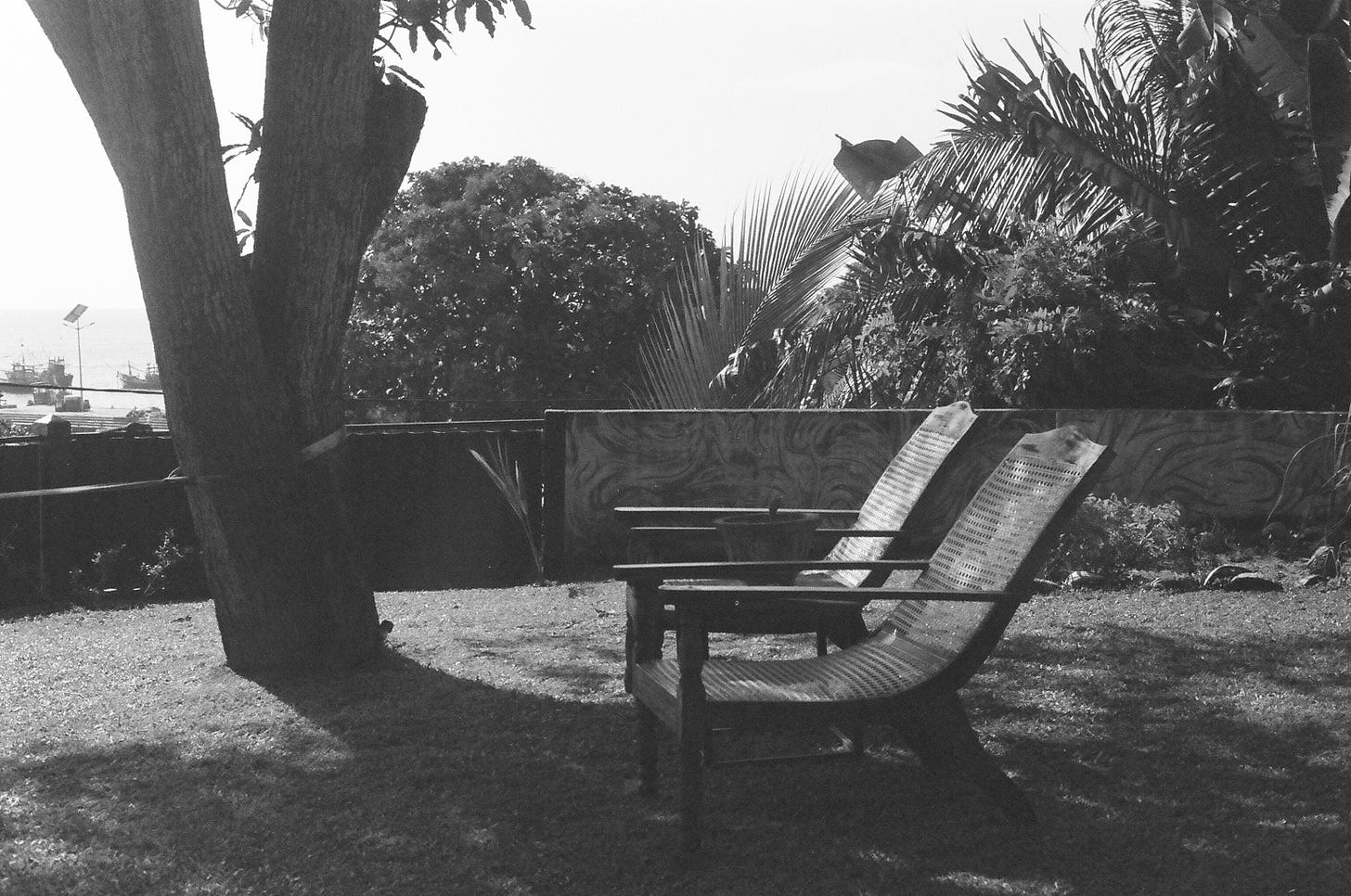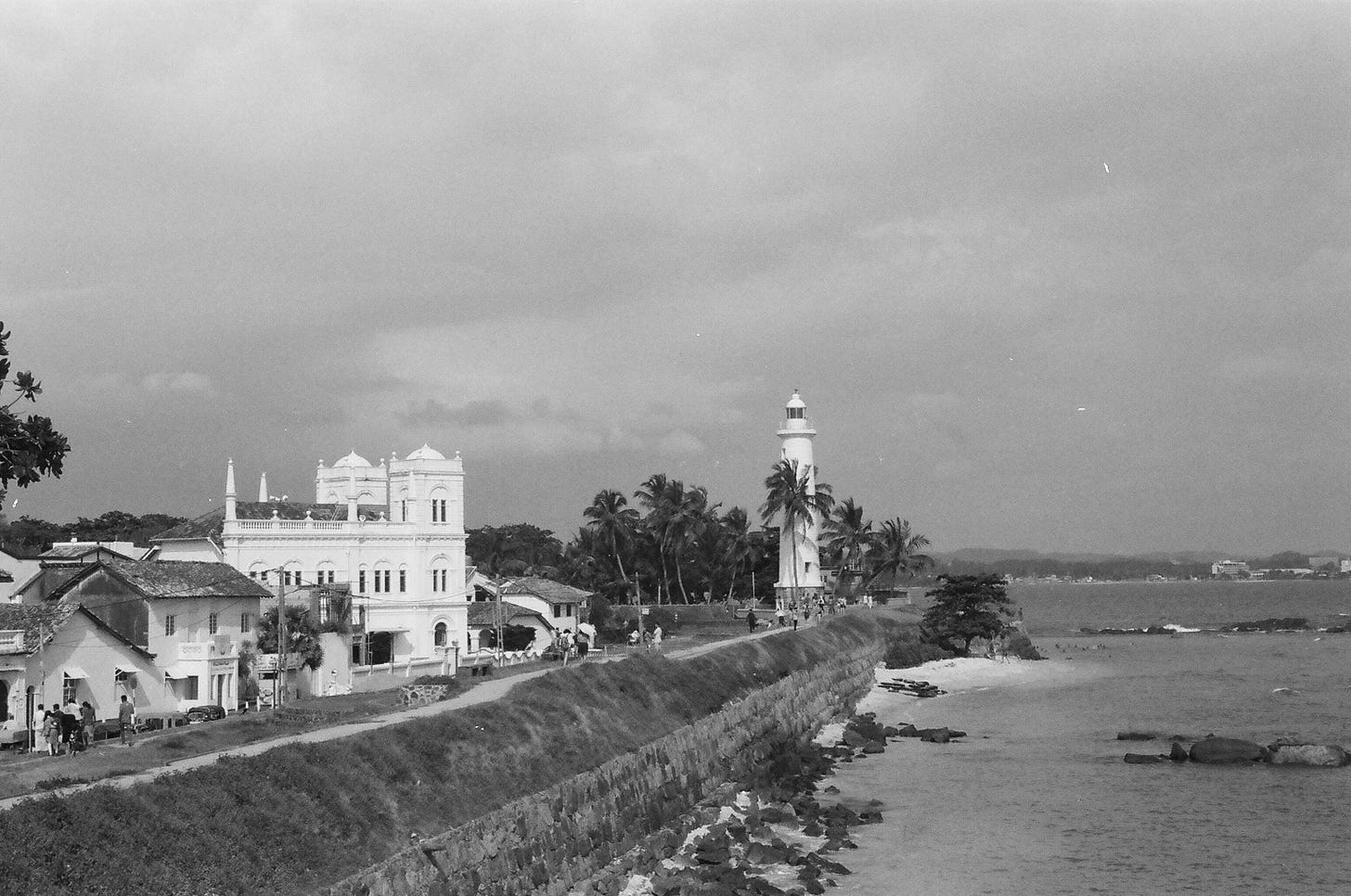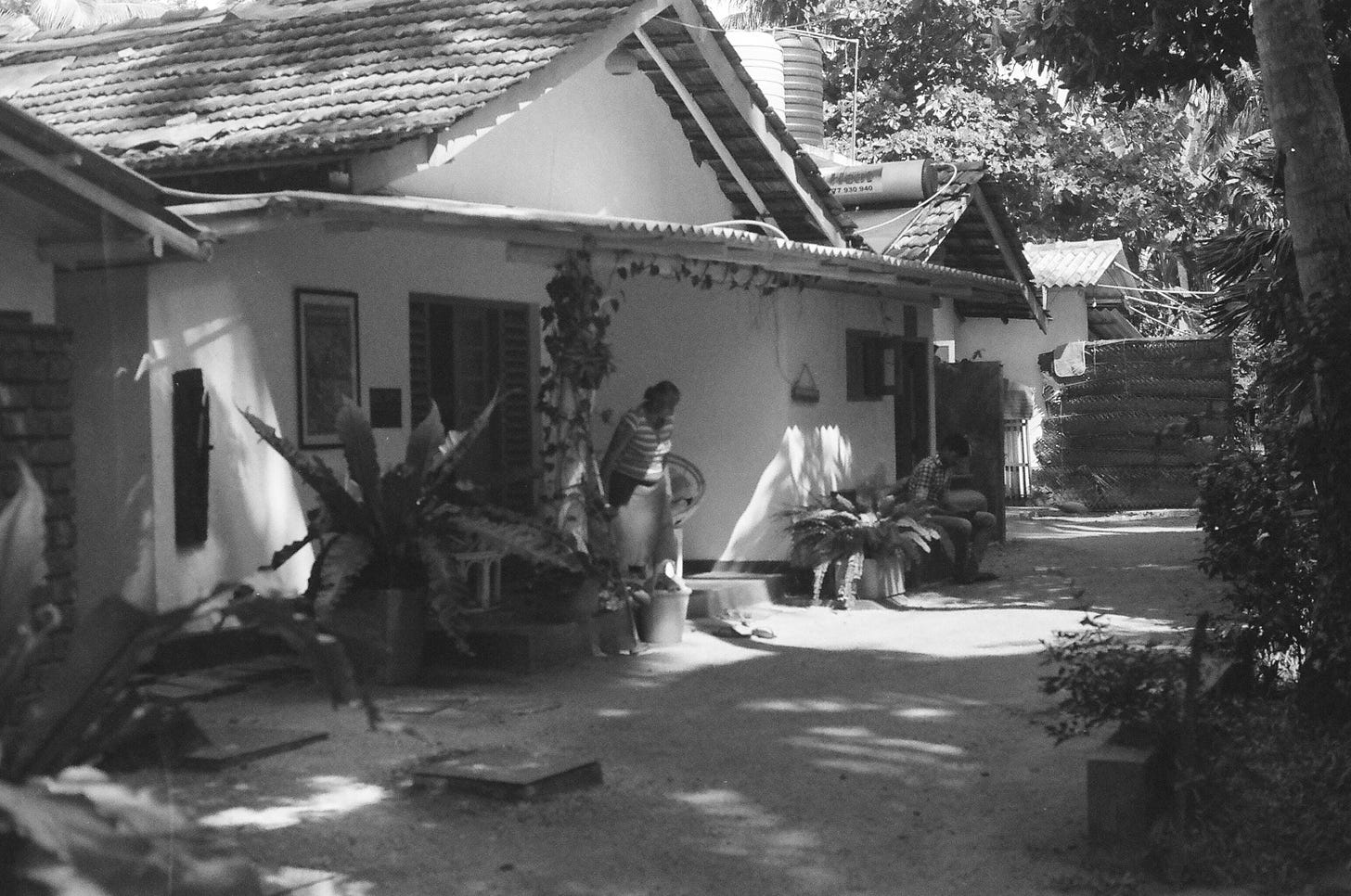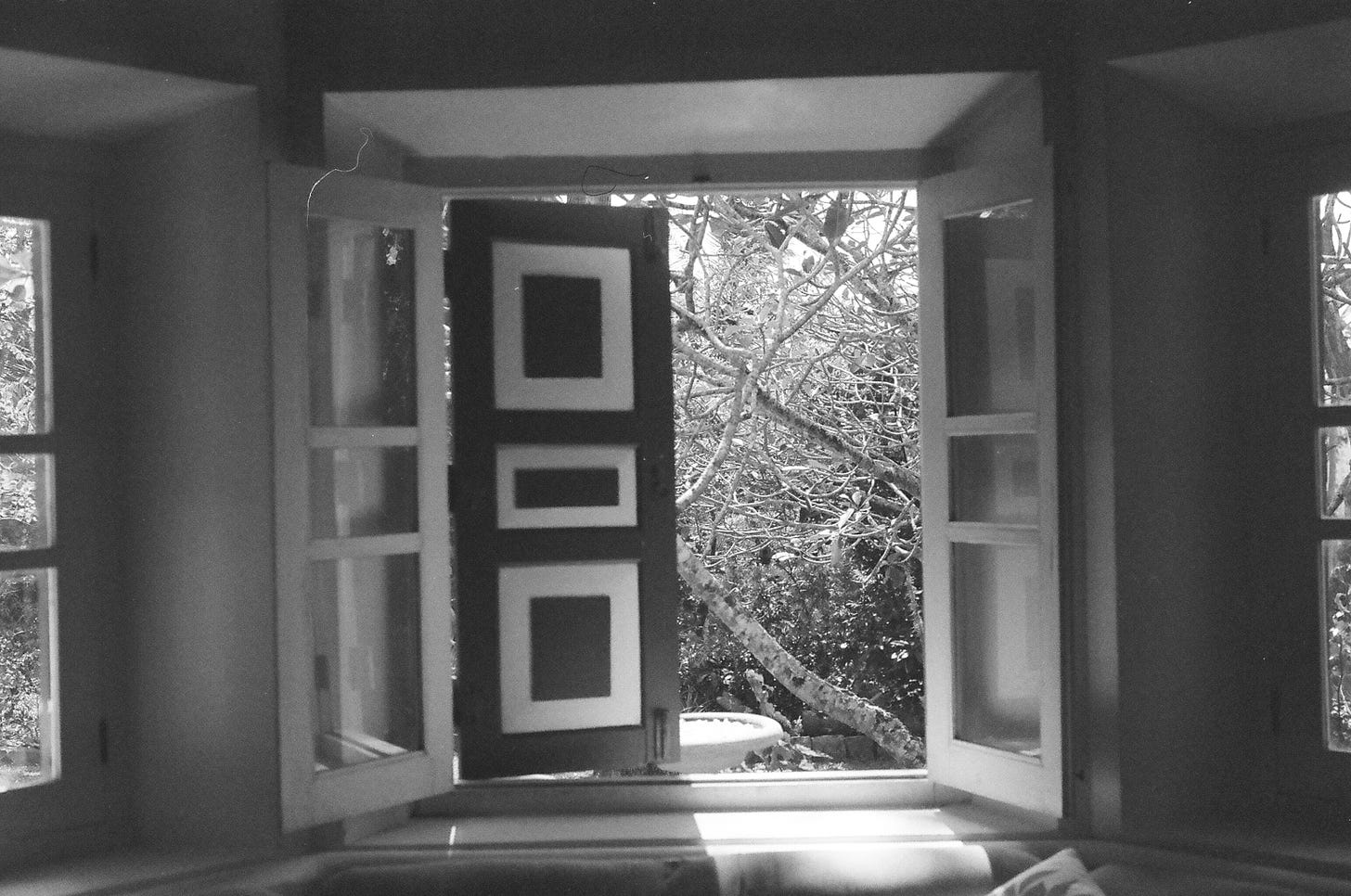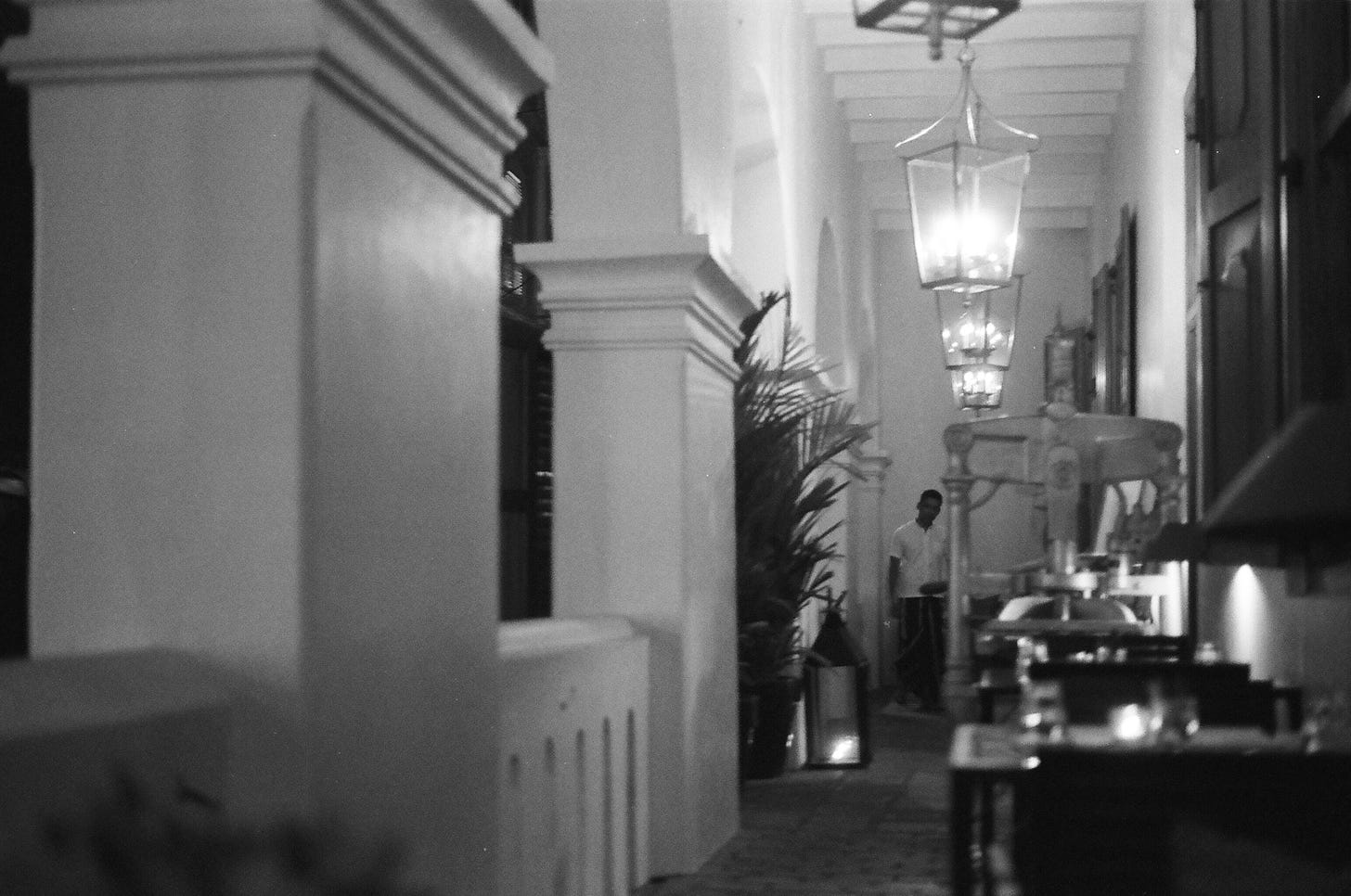A few years ago, I completed a postgrad in modern literature where I wrote my dissertation on travel writing. This essentially translated into a year of reading about how the genre is fundamentally flawed and rooted in a problematic past. This fact is undeniable and important to acknowledge when reading accounts about people and spaces different to an author. But one of the most compelling arguments that sits adjacent to this came from none other than my tutor, whose doctorate had argued how travel writing could also be seen as one of the last sources of wonder in the world. They are a collection of texts that celebrate the magic of humans and nature. In a modern age devoid of mystery, where everything is Google-able and documented and planned, this feels more important than ever. I have to agree with him.
I am as much an armchair traveller as I am a real-life one. I totally agree with Bruce Chatwin who said, “travel doesn’t broaden the mind. It makes the mind.” I have kept notebooks throughout my trips and as this newsletter shifts into a new space, I’d like to share writings from past journeys alongside film photography from those adventures. I hope they will offer a small sense of wonder that keeps me enchanted with this little life.
First up, notes from a salty holiday in Sri Lanka. Dreading a dark, cold winter ahead, my friend and I decided to escape to the humid island one November. Little did we know that a pandemic was waiting for us and that this would be one of the last adventures we would have for some time.
Written in December 2019:
I find it hard to write about Sri Lanka because Michael Ondaatje has already done it so well: the 8am heat. The mosquito-bitten skin. The rotting mango in the noon sun. Hands drenched yellow by turmeric curry. Peacocks piercing the night. He has captured it all.
I find it hard to write about Sri Lanka because I am not from there. I swept through it for ten days in November 2019. How am I to understand its stories and histories? The lineage confuses me- the Portuguese and then the Dutch and British. What came before? What remained after they left? The Wikipedia page didn’t say. As we wound our way in a taxi from the heaving capital of Colombo to the hill country, through villages and coconut trees and never-ending green, I saw glimpses of its colonial past: old homes that were left behind, and that the jungle grew around and claimed.
We travel from Kandy to Ella in an old, blue train. The railway was built by the British to transport tea, a man opposite me explains. “The tracks are English,” he says, “but the train is now Chinese”. We sit in the third-class compartment, our hot legs sticking to the worn leather seats whilst tea plantations snake alongside us, vast and vibrant. We drink sweet chai and as the rain begins to fall, a small hand extends from a window in front of me to catch the water.
I find it hard to write about Sri Lanka because I am not from there. And yet, in those early mornings in the mountains, and yet again when we snaked back down to the coast, I found textures of my past in its present. The thick, cool air, not yet touched by the sun. The sea gently calling. The lush vegetation, calm and quiet. I remember it all from my upbringing in a tropical city by the sea. As I lie half awake in the slatted darkness of my room in Hiriketiya, a fan furiously whirring overhead, I could almost believe I was waking up in Durban, 12 years old again, in the middle of summer.
We move up the coast. A tuk-tuk hurls us past the ocean, powerful and reassuring all at once. We eat meals we can hardly comprehend they are so delicious and generous. Mounds of rice with coconut sambal. Thick yellow dhal. Gently spiced potatoes. Deep-fried aubergines. Curried green beans. We drink from coconuts. We eat a fiery prawn curry. We think how we could live here forever.
By day 6 I am drunk on this place. The sunshine. The ocean. The food. The kind people. In Galle, a man invites us into his home, have you ever seen an original building in the Dutch fort, he asks us. “They made these walls with coral”, he says. “They made the ceilings high, to fight the heat”, he shows us. “They built a courtyard out the back too”, he demonstrates. “This house withstood the tsunami and the Dutch government has supported its refurbishment. I have lived here my whole life, for over 40 years. I am the fifth generation of Muslims that have lived here. I am Mr Shaffer”, he says, “and I am a professor of Gemology.” We say goodbye, but I think about Mr Shaffer for the rest of the day. When we return to our calm hotel on the outskirts of Galle, high in the jungle, I think of the water rushing into his home, all the ghosts it fought with but could not destroy, like gems floating around that ancient room in the darkness.
We leave Sri Lanka on Monday 18th of November. My clothing is thick with sweat and dirt and heat. My skin is a dark caramel. My heart is heavy to leave. Rajapaska has won the presidency. All through the night fireworks blasted over the coast in celebration. There is so much I don’t know. The civil war is not spoken of here. The recent bombings in Colombo are a sensitive topic. On the day of the voting, a group in the north of the island had shot at a bus full of civilians - thankfully, no casualties occurred. But all the while I ate roti in a hut overlooking the ocean, dreaming of a home I can only just remember.
Michael Ondaatje’s memoir, which I read on the flight home, becomes a bridge to an island that slipped past me as if in a dream. That I will long for until I can find my way back.


